MSF launched the emergency project on 5th September 2024 in response to the catastrophic flooding that displaced hundreds of thousands of people, disrupting essential services and posing severe health risks to vulnerable populations.
In mid-September, the floodwaters had barely subsided in Noakhali, in southern Bangladesh, when the devastating consequences began to unfold. Among the many people affected was 14-month-old Salman, brought to Noakhali General hospital by his parents. The young boy was ill with diarrhoea, a common risk in the flood-affected region.
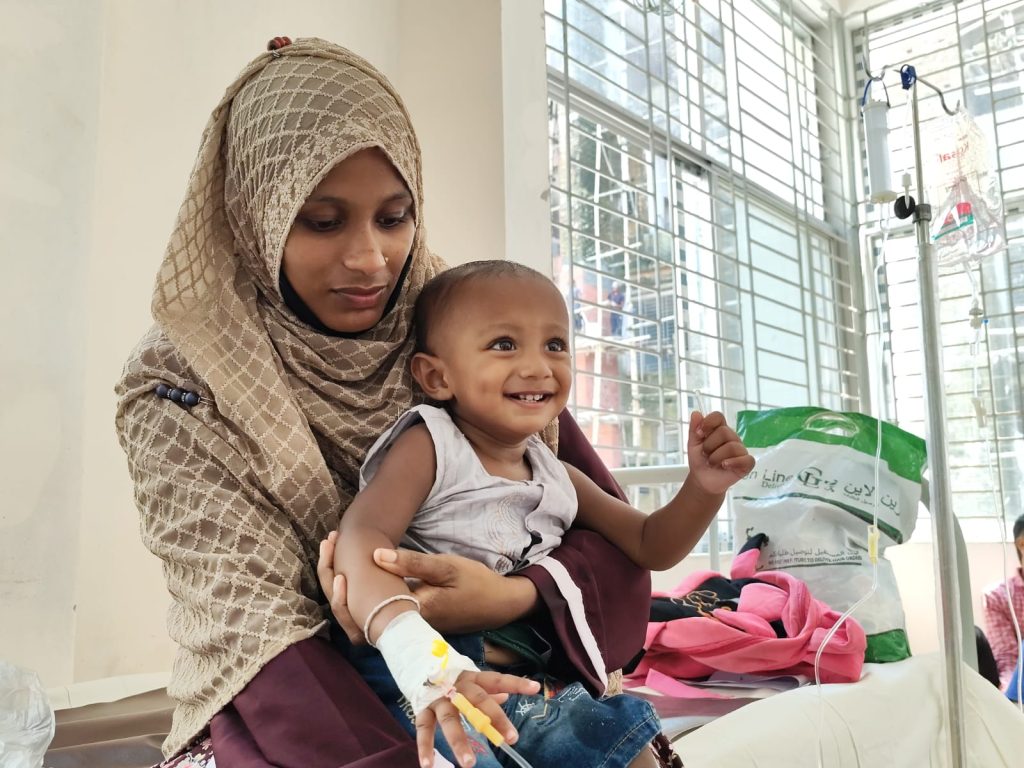
Like others, the family had no choice but to rely on contaminated water to drink, leading to a widespread outbreak of diarrhoea. Despite initial attempts to treat Salman at home with over-the-counter medications from the village doctor, his condition worsened, prompting his parents to seek urgent medical attention at the hospital supported by Médecins Sans Frontières (MSF).
The worst flood in the past two decades in Noakhali
Noakhali and Feni has been grappling with flash floods triggered by relentless monsoonal downpours since late August. The current floods are poised to be one of the most devastating in Noakhali over the past two decades.
Rifat had rushed from Chittagong to his village to support his family. His mother and younger sister were had to fend for themselves as the floodwaters surged into their home.
The floodwaters destroyed homes, farmland, and infrastructure. Roads were submerged, cutting off entire communities and hindering relief efforts. The devastation has been widespread, leaving thousands of people displaced and struggling to cope. The floodwaters destroyed homes, farmland, and infrastructure. Roads were submerged, cutting off entire communities and hindering relief efforts. The devastation has been widespread, leaving thousands of people displaced and struggling to cope.
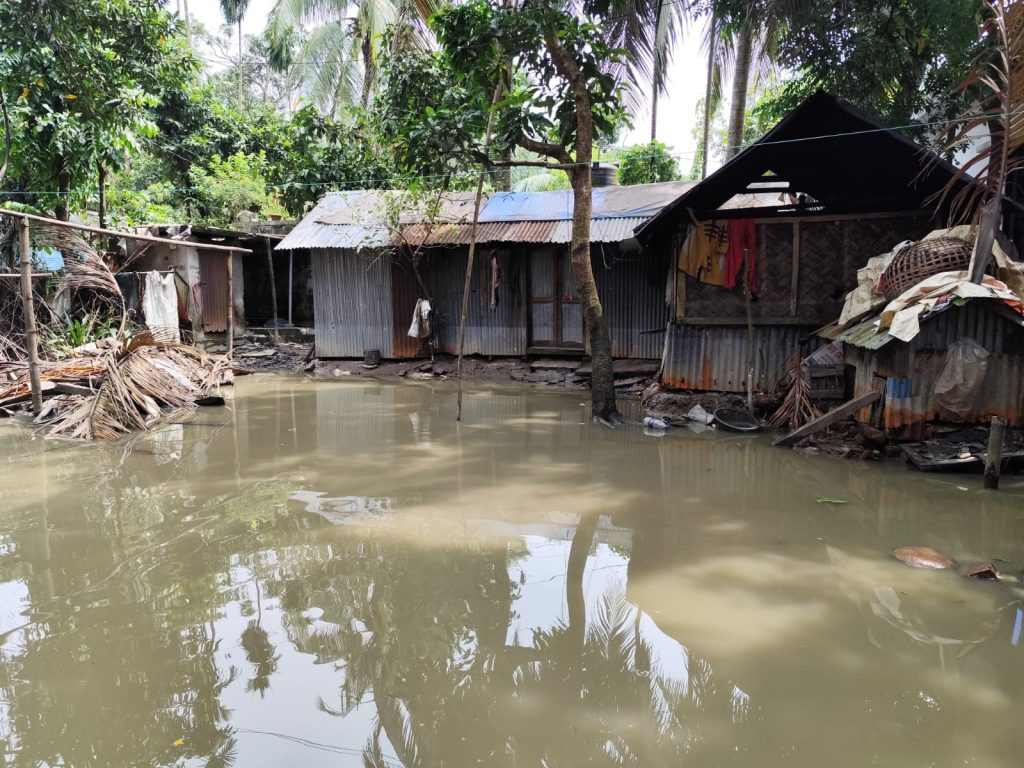
“I invested so much in my fish farm and paddy fields, only to see them swept away by the relentless floods. I have lost everything due to the floods. The financial loss is devastating, but I’m not the only one,” says Javed
Post-flood health issues and the fragile water and sanitation system
The floodwaters have created a breeding ground for waterborne diseases, such as diarrhoea and skin infections. The lack of access to clean drinking water and sanitation facilities has exacerbated the public health crisis. Children, elderly people, and women are particularly vulnerable during these emergencies.
Jasmine, who is pregnant and from Laxminarayanpur, Maijdee, was forced to flee her flooded home within hours of the floodwaters rising. “I had to rush to a shelter with my three-year-old son,” she says. “The water rose so quickly; we didn’t have time to pack anything.”
Jasmine’s brother took her to Noakhali General Hospital, where she was admitted as her condition was getting worse.
In response to the floods, MSF teams launched an emergency response in Noakhali between early September and early October. They focused on the result of their assessment which highlighted the need for urgent medical and water sanitation services.
The 250-bed in-patient department at the hospital was overwhelmed by the surge of people with acute watery diarrhoea. Hospital staff, including the MSF medical team who supported the paediatric and adult wards, worked hard to cope with the increasing demand. Patients were lined up on the floors and beds due to the influx of sick people.
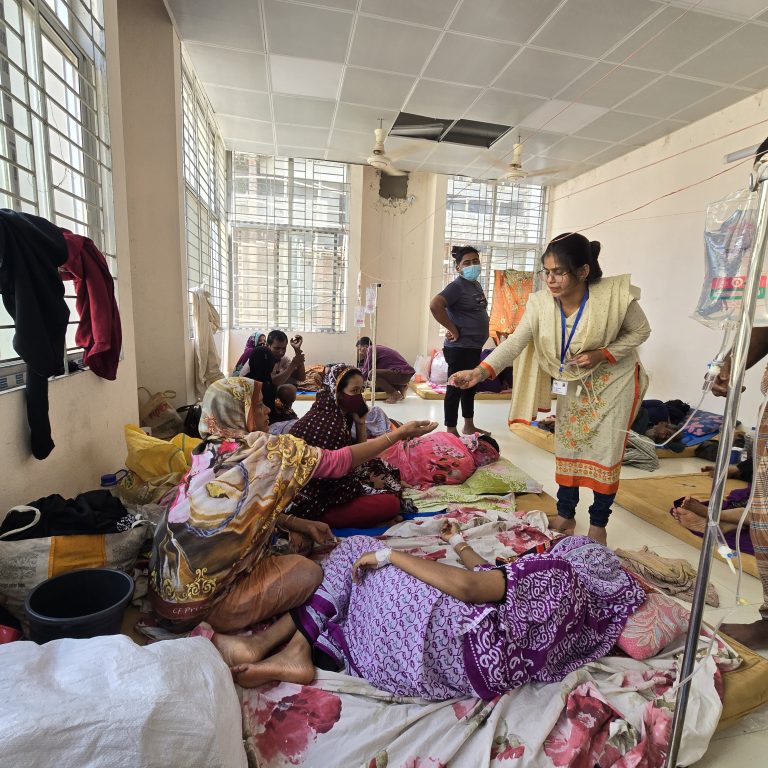
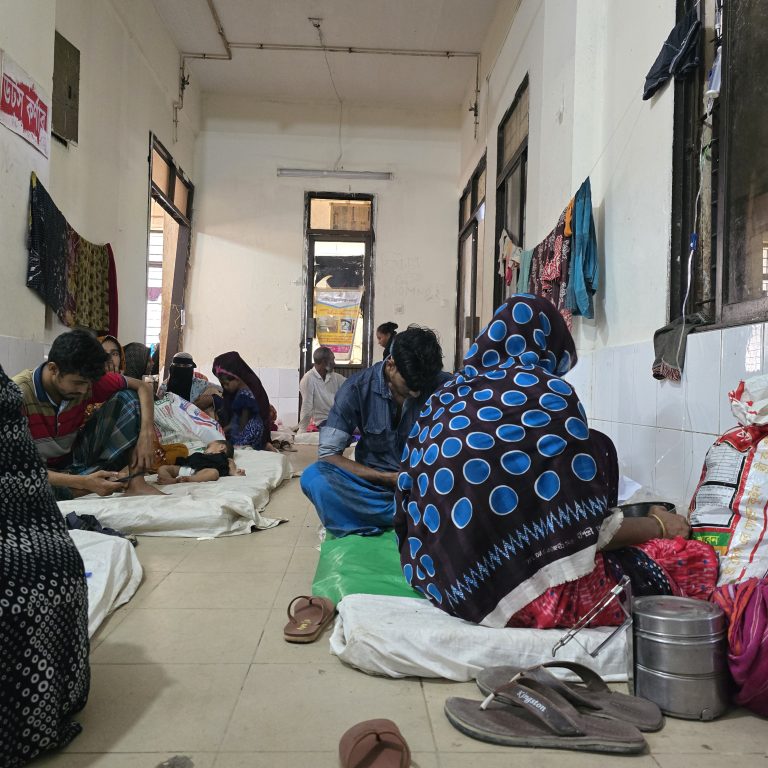
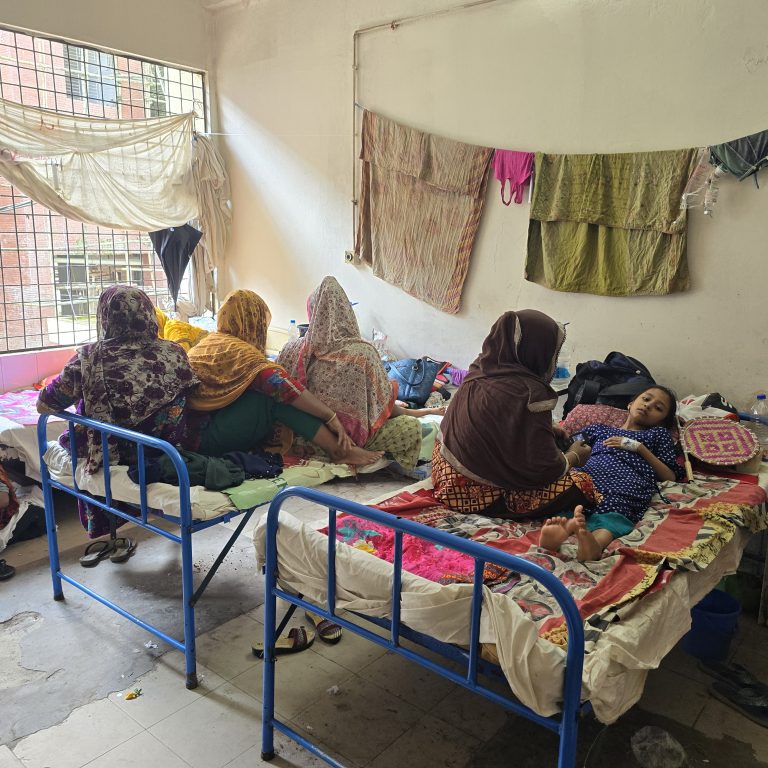
“When we began our response, we initially focused on treatment. However, we soon realised that many patients could be discharged after brief observation,” says Paul. “To optimise patient flow and ensure quality care, we implemented a triage system, allowing us to make the best use of available resources.”
Between 5th September and 4th October, MSF teams treated 1,946 patients with acute watery diarrhoea. In addition, 154 health promotion sessions were conducted in the hospital and the set up a diarrhoea emergency ward. We also recruited 24 cleaners to implement proper hygiene and sanitation measures. To ensure access to safe drinking water, the team disinfected and repaired broken tube wells in Noakhali and Feni districts, while also disinfecting water tanks in the hospital to prevent the spread of diseases.
With the support of a local non-governmental organisation, MSF distributed 1,000 kits with items including mosquito nets, torches, soap, washing powder, diapers, toothbrushes, toothpaste, and sanitary napkins, in five locations of Kabirhat upazila (administrative division). In Feni, MSF focused on water and sanitation, disinfecting and repairing tube wells. The water and sanitation team also trained 45 volunteer teams on disinfection and repairs in 45 villages across Noakhali and Feni.
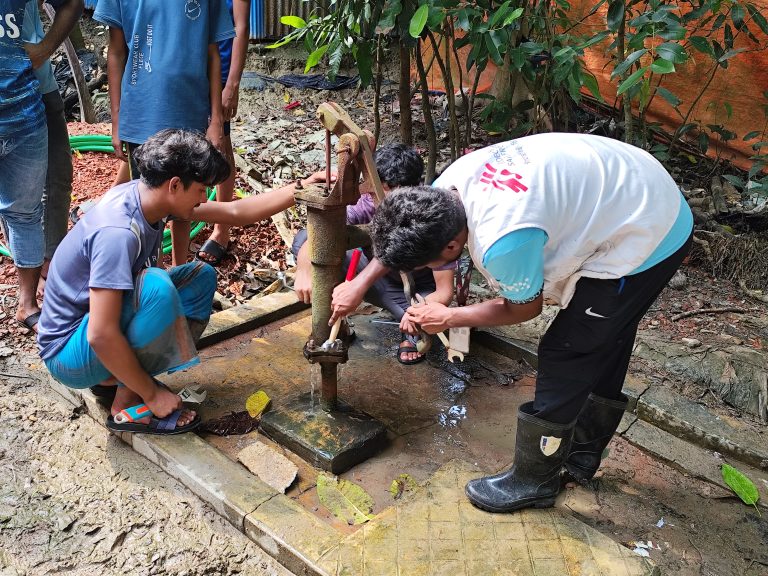
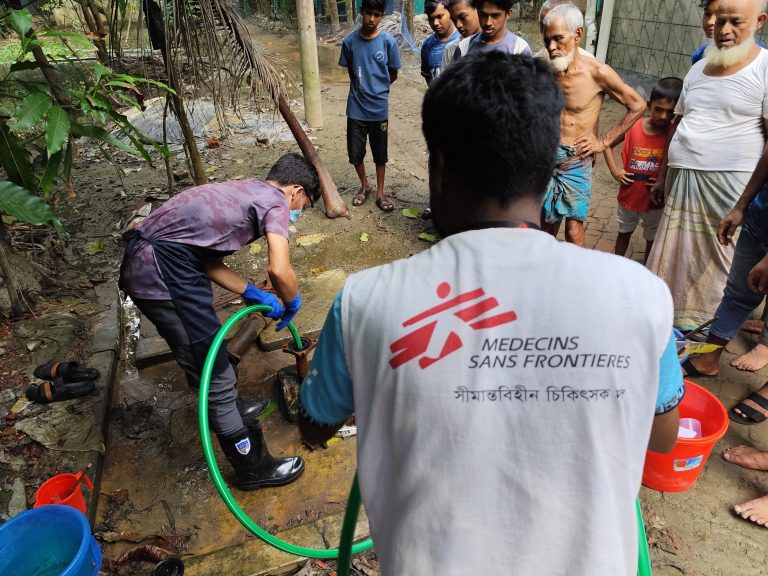
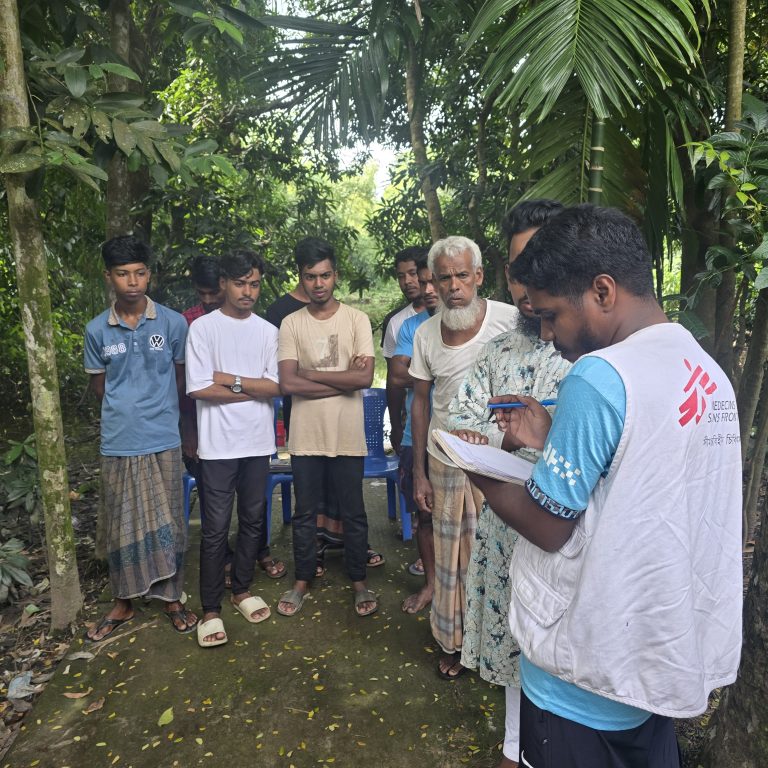
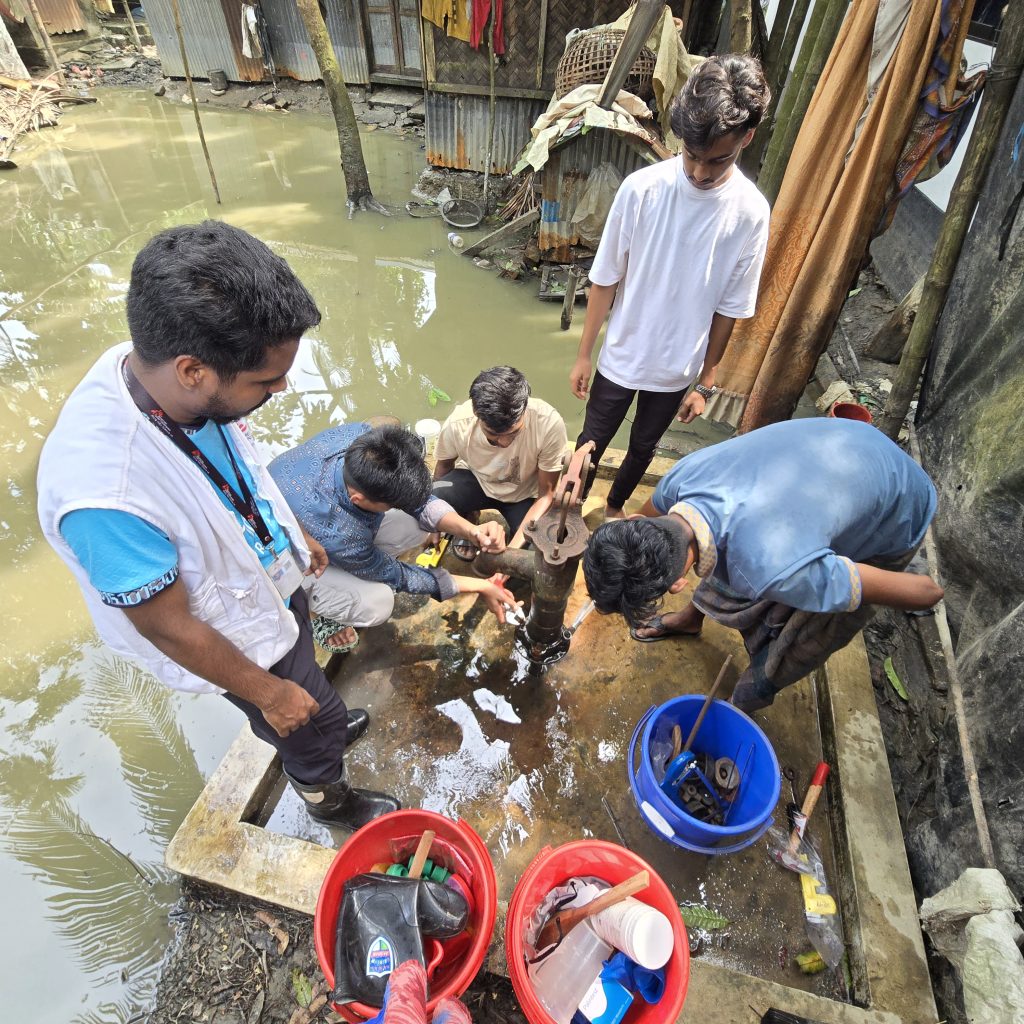
To ensure access to safe drinking water, MSF’s water and sanitation team disinfected and repaired broken tubewells, and also disinfected water tanks in the hospital to prevent the spread of disease. Team also provided training to locals on how to disinfect water sources and repair damaged tubewells, and distributed essential equipment for these tasks.
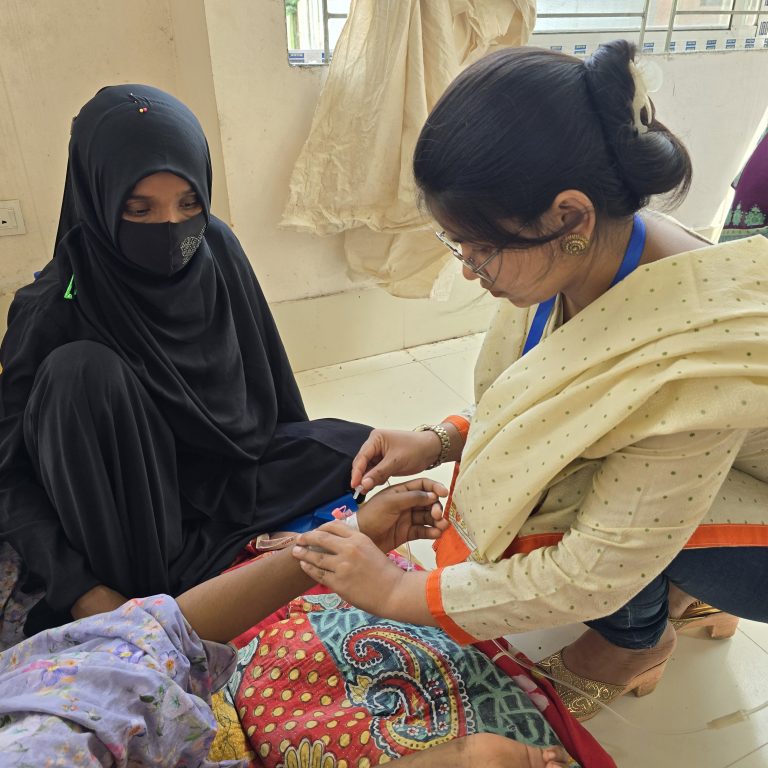
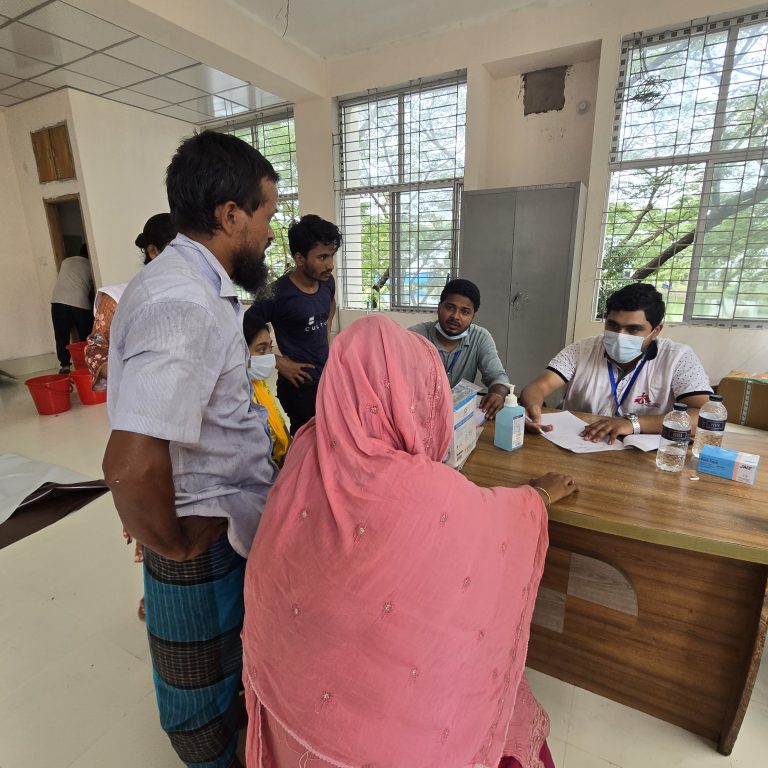
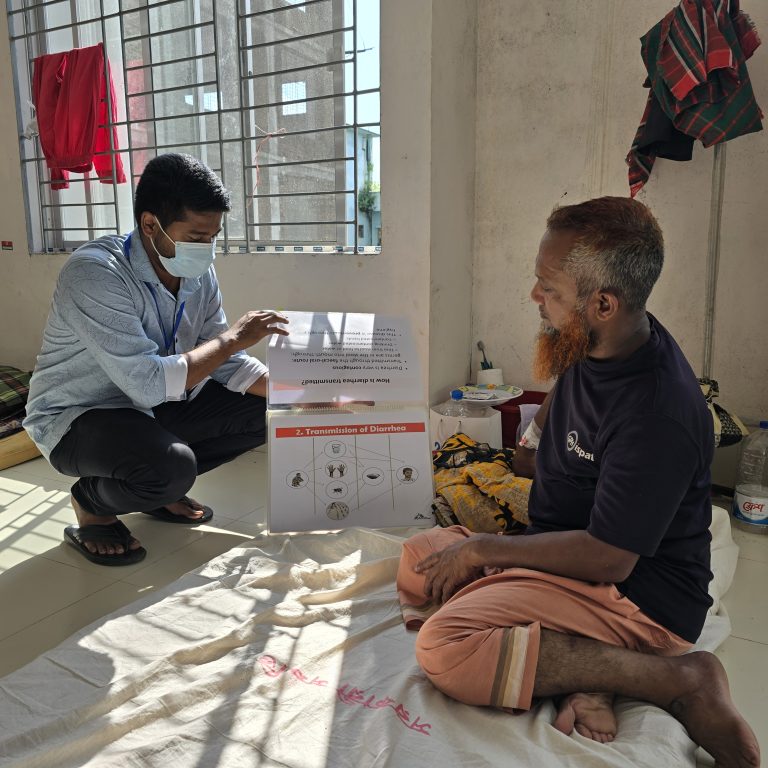
MSF's work in Bangladesh
MSF closed the emergency intervention on 4th October, but we remain committed to supporting national and local authorities in Bangladesh when natural disasters arise, as we continue to work in Cox’s Bazar and Dhaka.












